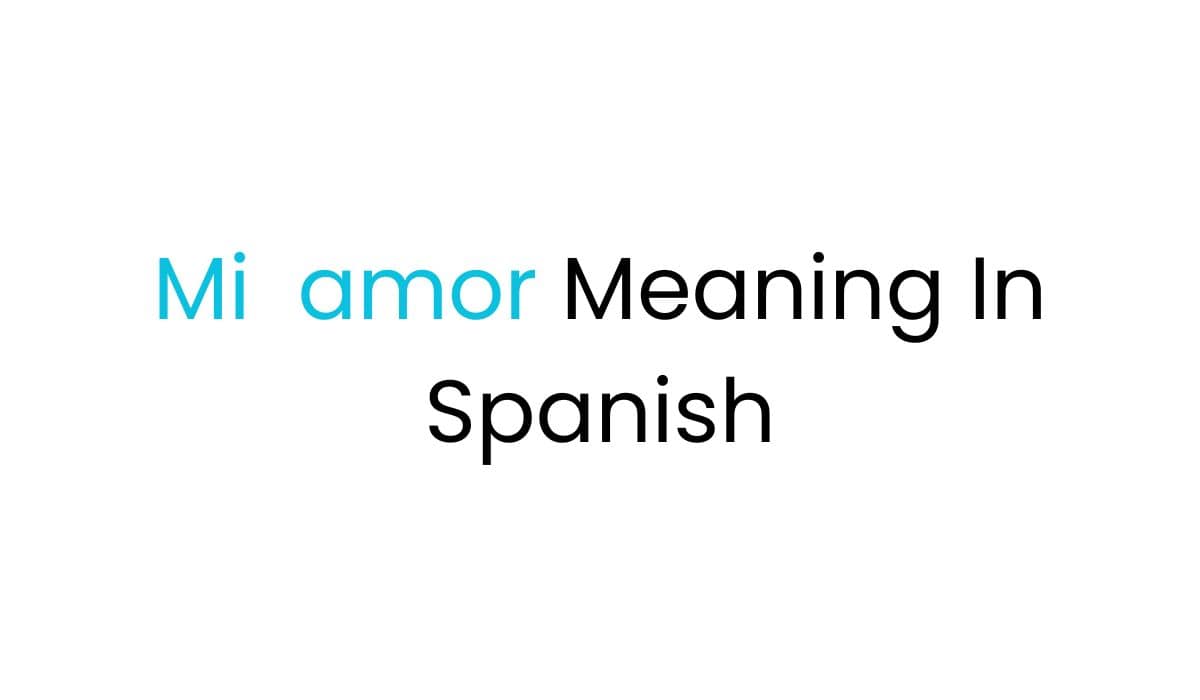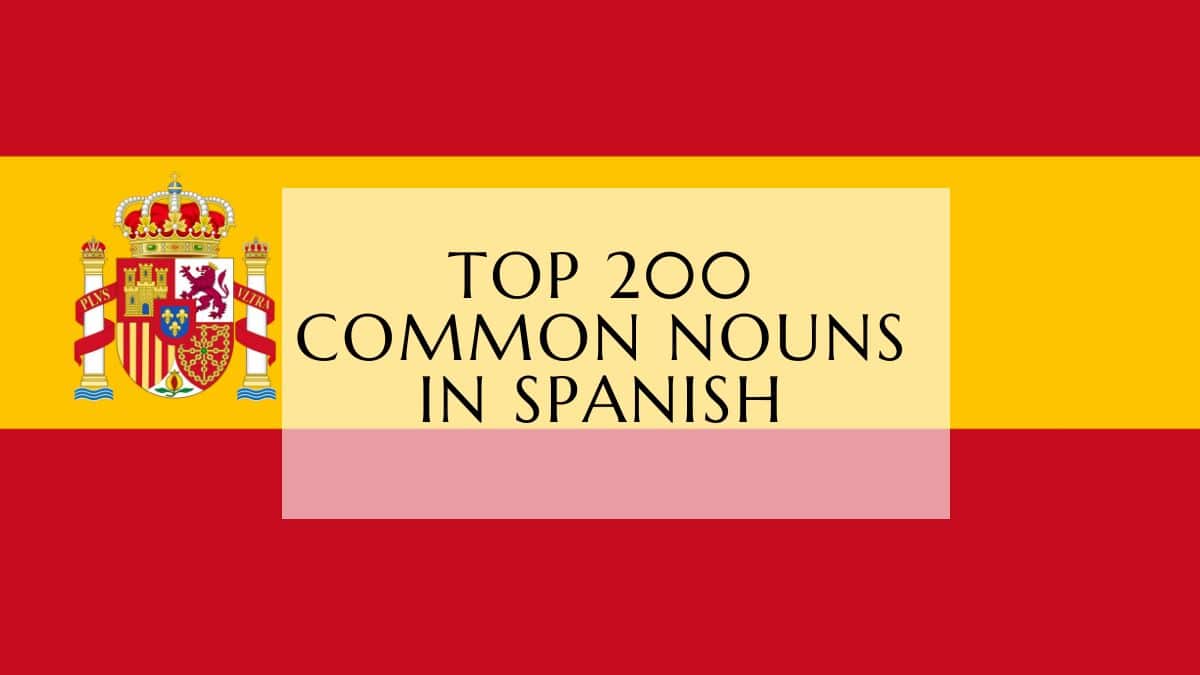The phrase “mi amor” comes from the Latin “amor,” meaning “love.” It’s a term of endearment in Spanish, often translated as “my love.” This expression is key in Spanish culture, showing deep feelings of love and connection. It’s used for both romantic and family relationships, making it a favorite way to show affection.

“Mi amor” combines “mi” (my) with “amor” (love), making it suitable for both men and women. This flexibility has made “mi amor” a beloved term across Spanish-speaking areas.
Key Takeaways:
- “Mi amor” literally translates to “my love” in English and is a widely used Spanish phrase for expressing affection and intimacy.
- The phrase is constructed with the possessive adjective “mi” (my) and the masculine noun “amor” (love), allowing it to be used for both genders.
- It has its roots in the Latin word “amor,” which means “love,” highlighting its deep cultural and linguistic origins.
- The phrase is commonly employed in romantic contexts, as well as to convey familial and platonic love and endearment.
- The versatility and widespread recognition of “mi amor” have contributed to its enduring popularity within the Spanish-speaking world.
The Romantic Significance of “Mi Amor”
Understanding the Origins and Nuances
“Mi amor” means “my love” in English. It’s a key term in Spanish romance. It comes from the Latin “amor,” meaning love. This term has grown to symbolize deep feelings, from playful to deep love.
“Mi amor” has many meanings based on how it’s used. The “mi” means “my” and “amor” means “love.” Together, they express a strong bond. The way someone says it can be light or very serious, showing the closeness of the relationship.
In Spanish-speaking areas, “mi amor” fits many romantic moments. It’s used from good mornings to deep confessions. This phrase is a doorway to a world of spanish romantic expressions, hispanic romantic words, and latino love idioms.
“The use of ‘mi amor’ is a testament to the deep-rooted passion and poetic nature that permeates the Spanish language and its culture.”
For centuries, “mi amor” has been part of Spanish art and literature. Famous writers like Miguel de Cervantes used it. Today, it’s in music, movies, and art, showing the lasting romance in Hispanic culture.
Expressions of Love: Versatile Usage of “Mi Amor”
“Mi amor” is a term of endearment in Spanish-speaking countries. It means “my love” in English. It’s used to show love in many ways.
It can be used alone or with other phrases. For example, “Buenos días, mi amor” means “Good morning, my love.” It adds romance to greetings and messages of love or missing someone.
Because of its flexibility, “mi amor” fits in both casual and formal situations. It’s a favorite way to express love in Spanish-speaking cultures.
Spanish also has many other ways to say “I love you.” Words like “cariño” (dear, sweetie), “corazón” (heart), “mi vida” (my life), and “tesoro” (treasure) show love and affection. These words add depth to conversations.
This and other terms show how Spanish is rich in expressing love. Using these words in daily talk adds romance and emotional connection. It helps build stronger relationships and appreciation for the Spanish language.
A Gateway to Spanish Romantic Phrases
Exploring the phrase “mi amor” can open up a world of romantic expressions in Spanish. This term of endearment is just the start. The Spanish language has many ways to show love, affection, and closeness.
Phrases like “mi querido/a” (my dear) and “mi corazón” (my heart) add depth to relationships. Knowing the difference between “te quiero” (I want/love you) and “te amo” (I love you) shows the emotional depth of Spanish culture.
Learning “mi amor” is a great first step into Spanish romance. With 400 million Spanish speakers worldwide, knowing these phrases can help in both personal and work relationships.
| Spanish Love Phrase | English Translation | Nuanced Meaning |
| Mi amor | My love | A term of deep affection, often used in intimate relationships |
| Mi querido/a | My dear | A more formal and poetic expression of endearment |
| Mi corazón | My heart | A heartfelt way to express deep love and attachment |
| Mi ángel | My angel | A term of endearment conveying adoration and protection |
Understanding Spanish love phrases and Spanish terms of endearment like “mi amor” enriches communication. It leads to deeper connections and appreciation for Spanish culture.
Distinguishing “Te Quiero” and “Te Amo”
In the vibrant Spanish language, “te quiero” and “te amo” both show love and affection. But they have subtle differences. “Te quiero” is for a strong liking or care for someone close, like a friend or family. “Te amo” is for deep, passionate, and lasting love, usually for a soulmate or family.
“Querer” is the casual way to say “I love you” in Spanish. It fits many loving relationships, like friendships, marriages, and family ties. “Amar” means a deeper, intense love. It’s often used in serious romantic relationships or with family.
These phrases have different uses in Spanish-speaking areas. In some places, “amar” can mean a strong liking, not just romantic love. But generally, “te quiero” and “te amo” have clear differences in the Spanish language for showing love.
The Nuanced Difference in Expressing Love
“Te quiero” and “te amo” both say “I love you,” but with different intensities. “Te quiero” is for early love or close friends and family. “Te amo” is for a deeper, passionate love, usually with a long-term partner or soulmate.
Knowing this difference helps us understand love and relationships in Spanish-speaking cultures. It lets us share our feelings better and make stronger connections.
| Phrase | Meaning | Typical Usage |
| “Te quiero” | I like/love you | Close friends, family members, newer relationships |
| “Te amo” | I love you (deeply) | Serious, committed romantic relationships, immediate family |
Cultural Insights: Love in the Spanish-Speaking World
The Spanish language and its cultures have a long tradition of showing love with hispanic romantic words and latino love idioms. Terms like “mi amor” are just the start. The Spanish-speaking world has many more ways to express love and affection.
Terms like “mi vida” (my life) and “mi alma” (my soul) show love in a family setting. Nicknames like “mi amorcito” (my little love) add a playful touch. These expressions highlight how important love and relationships are in Spanish cultures.
“Te amo” means deep love in Spanish, for serious relationships. “Amar” can be used in many ways to say you love someone. “Te quiero” can mean “I like you” or “I love you,” perfect for new relationships.
- “Eres mi todo” means “You are my everything,” showing how important someone is.
- “Eres el amor de mi vida” says “You are the love of my life,” for long-term love.
- “Te adoro” means “I adore you,” showing deep love.
- “No puedo vivir sin ti” means “I can’t live without you,” showing you can’t be apart.
Spanish also has romantic words like “amor” (love), “cariño” (affection), and “encanto” (charm). Phrases like “Pasión” (passion) and “Alma gemela” (soulmate) show deep feelings and connections in Spanish culture.
Incorporating “Mi Amor” in Daily Life
Using “mi amor” in daily life can show love, strengthen relationships, and make everyday moments more romantic. It can be a casual greeting, a term of endearment, or a way to express deep love. This phrase fits well in many situations.
For example, you might say “¿Cómo estás, mi amor?” (How are you, my love?) to ask about someone’s day. Or whisper “Te amo, mi amor” (I love you, my love) before saying goodbye. Learning how to use it can help you connect more deeply with others and appreciate the beauty of the Spanish language.
Adding “mi amor” to your daily life can make your relationships warmer and more loving. It’s a simple way to share affection and connect with the rich culture of Spanish sweet nothings. Whether it’s a fun chat or a serious moment, this lovely expression can open up new ways to show love and care.
Oualid Cheddadi is the founder of Lingualid, a platform that inspires independent language learners worldwide, regardless of the language they are learning. The name “Lingualid” is derived from the Portuguese word for “language,” “língua,” and the last three letters of Oualid’s name, “Lid.”



